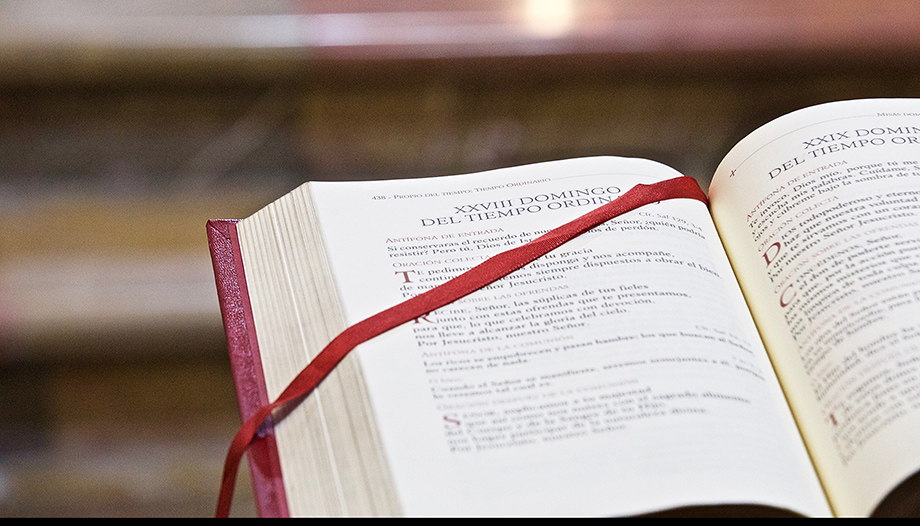In today's first reading, wisdom is described as food. "Come eat of my bread, drink the wine I have mixed," cries wisdom, personified as a woman. It is a good metaphor. Certainly, we do not want to eat the bread of foolishness: "the mouth of a fool feeds on foolishness," the book of Proverbs tells us later (Prov 15:14). And St. Paul warns us in the second reading: "Do not get drunk on wine, which leads to debauchery".
But what in the Old Testament was only a metaphor becomes the most literal truth in Christ. We can truly eat wisdom in the person of Christ, for He is the "wisdom of God" (1 Cor 1:24). And eating of him is not a metaphor. It is absolutely real and literal, as Our Lord insists in today's Gospel.
We have now reached the point in John's Gospel where Jesus gives a complete and explicit revelation of the Eucharist, the sacrament of his presence, which he explains in this discourse and will institute at the Last Supper. In all that Our Lord says there is no room for doubt. "And the bread which I will give is my flesh for the life of the world." This scandalizes the Jews: "The Jews disputed among themselves, 'How can this man give us his flesh to eat?'" But instead of backing down or saying that he was speaking only metaphorically, he insists even more: "Truly, truly, I say to you, unless you eat the flesh of the Son of man and drink his blood, you have no life in you. My flesh is true food, and my blood is true drink".
By eating the flesh of Christ, he lives in us and we in him, and we shall live forever, Jesus teaches.
– Supernatural Eucharist is the ultimate communion at the table: it is not just a meal shared with a loved one, it is eating one's own loved one. In the early days of the Church, pagans thought that Christians performed cannibalistic rites, but nothing could be further from the truth. The evil of cannibalism is the destruction of the eaten. In the Eucharist, Christ is not destroyed: on the contrary, he makes us sharers in his eternal life.
And so, yes, this reception of Christ, God himself in the form of bread and wine, leads us to live in the Spirit: "Be filled with the Spirit," says St. Paul. The frequent and faithful reception of the Eucharist leads us to our eternal state after the Resurrection of the flesh, the perfect union of body and spirit, Christ alive in us so that we may live "in abundance," in fullness (Jn 10:10).
Homily on the readings of the 20th Sunday in Ordinary Time (B)
Priest Luis Herrera Campo offers his nanomiliaA short one-minute reflection for these Sunday readings.









